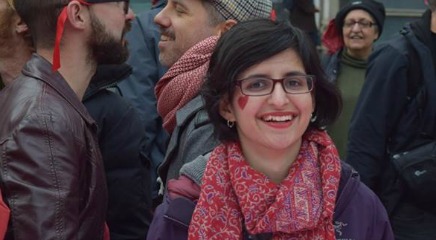Atiya Jaffar
Atiya Jaffar
Toronto, Canada
My entry into the climate movement was in my second year of university when I began a fundraising campaign for relief efforts in Pakistan after catastrophic floods swept across the country. This was an unprecedented disaster that displaced 10 million people -- at the time the UN called it the worst humanitarian disaster in recorded history. As a migrant from Pakistan this tragedy hit hard for me. Before that moment, climate change had been a very abstract issue in my mind. Now I saw the human-element of the issue. I began to draw the connections and realized that while we must respond and adapt to climate change by supporting on the ground relief efforrs, we also have to take action to mitigate the crisis. That means demanding ambition from politicians. It also means prioritizing the needs of climate impacted communities over the bottomline of corporations that have built a business model out of perpetuating this crisis.
3 years ago, I started a fossil fuel divestment campaign with a group of other students at the University of Guelph -- demanding our school 'uninvest' its endowment funds from oil, coal and gas companies because they have turned climate change into a profitable enterprise. I also attended UN climate talks in Paris with the Canadian Youth Delegation where we pushed the Canadian government to show strong climate leadership. Currently, I'm working with 350.org on a campaign calling on Prime Minister Trudeau to reject the Kinder Morgan tar sands pipeline -- a proposed project that would be the emissions equivalent of adding 34 million cars to Canada's roads.
A sustainable future means a just future. We need a technological power shift to create a green energy economy. We also need to foster a social power shift by taking power away from corporations and putting it in the hands of the people. This means building a democratized energy system comprised of community led renewable energy project. Internationally, justice means holding countries most responsible for the climate crisis responsible for financing resilience, adaptation and response to loss/damage in climate vulnerable regions. In Canada justice means reconciliation with Indigenous peoples by implementing the UN Declaration on the Rights of Indigenous Peoples.
